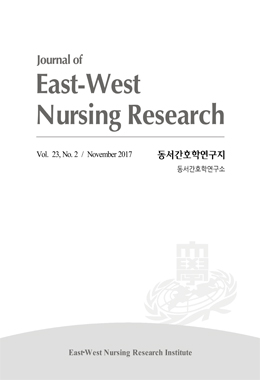Purpose: The purpose of this study was to identify factors that affect nursing students’ clinical practice ability. Methods: The data were collected from 303 nursing students who had more than 500 hours of experience in clinical practicum at 4 universities in Seoul and the metropolitan area. The instruments consisted of 27 items of critical thinking, 19 items of professionalism, 40 items of self reported leadership, 20 items of communication evaluation tool, and 61 items of nursing practice performance evaluation. Results: For the clinical practicum, most difficult for nursing students were cardiopulmonary resuscitation, fecal enema, stoma care, and blood transfusion. Clinical practice abilities were positively correlated with nursing professionalism(r=.26, p<.001), leadership (r=.16, p=.007) and critical thinking(r=.12, p=.031). Professionalism(β=.32, p=.001) was the most significant factor influencing the clinical practice ability of nursing students. Critical thinking was the second largest factor but not significant(β=.16, p=.058). Conclusion: The findings suggest that the nursing curriculum should include nursing knowledge and nursing skills as well as various case-based or field-based decision making training programs to cultivate professionalism, critical thinking and other abilities for clinical practice.




